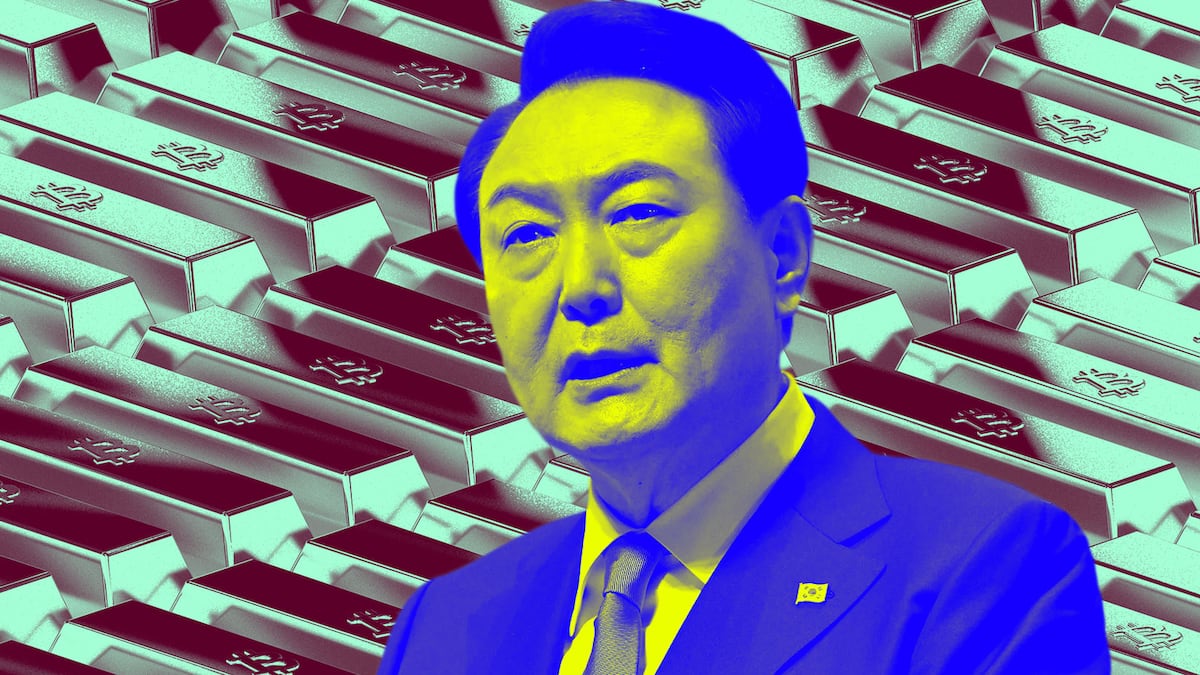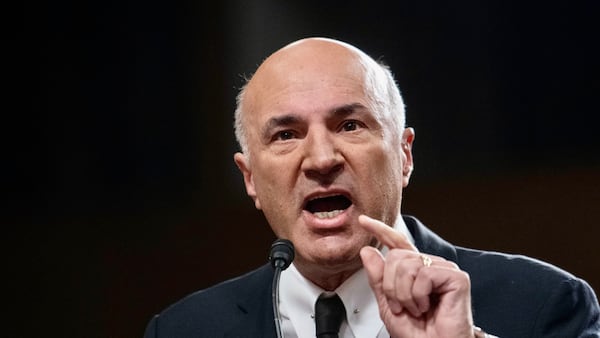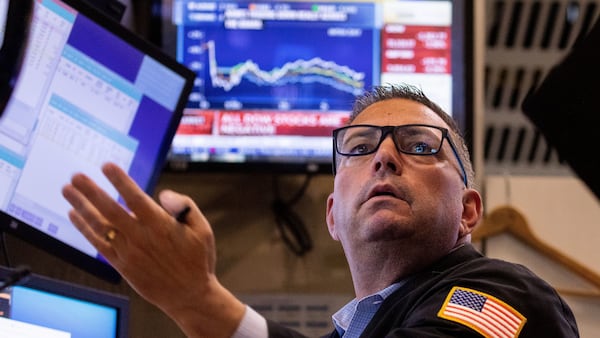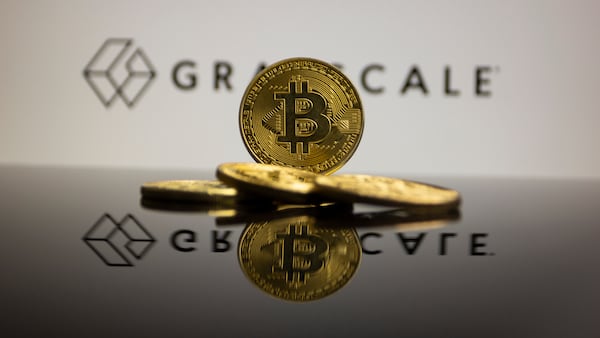- Asian regulators usually wave through SEC-approved fund offerings.
- Crypto crime wave in Hong Kong and other locales may have spooked officials, experts say.
- Asian regulators could be defending home turf, the fastest growing ETF market in the world.
For all the excitement greeting the approval of Bitcoin ETFs this month, there was one group that was underwhelmed by the breakthrough offerings — Asian regulators.
No sooner had exchange traded funds from Fidelity, Ark Invest, and BlackRock’s iShares unit hit the market in early January than finance watchdogs in South Korea, Singapore, and Thailand warned brokerages not to let their clients invest in the overseas offerings.
Moreover, Taiwanese regulators said that indices tracked by ETFs must comprise “securities,” which doesn’t include Bitcoin under the island nation’s rules.
Blocking funds cleared by the US Securities and Exchange Commission surprised market players. Asia is the fastest growing ETF market in the world, and usually regulators wave funds through with little fuss.
“Outright bans of US-approved ETFs are basically unprecedented,” said Jason Titman, the COO of Swyftx, an Australian crypto exchange. “It’s a bold move by these jurisdictions and it’s difficult to unpick the logic.”
One rationale
Protecting retail investors from the predatory practices of fraudsters may be a key reason for the action. Fighting crypto crime has become an urgent cause across the continent.
So, too, perhaps, is fending off Wall Street’s offerings to give home grown efforts time to catch up.
Justin d’Anethan, a Hong Kong-based senior executive at Keyrock, a cryptocurrency market maker, told DL News there was a rationale behind the regulators’ cautious approach.
“There’s a question of how those ETFs fit within the existing digital assets regulation, and how they monitor both retail and professional interaction with crypto,” d’Anethan said.
Criminal activities
Just this week, the United Nations Office of Drugs and Crime released a report that found more than $17 billion in USDT, the stablecoin issued by Tether, was connected to criminal activities across Southeast and East Asia during a one-year period ending last September.
And law enforcement officials in Hong Kong are scrambling to shut down rogue crypto exchanges that are suspected of fleecing hundreds of millions of dollars from unwitting investors.
It’s possible that Asian regulators fear the US Bitcoin ETFs, which racked up $10 billion in volume their first three days of trading, may trigger a stampede of investors before safeguards can be installed.
Then again, there may be another motivation — protecting home markets.
$1 trillion ETF market
Over the last five years, the Asia Pacific region has become the fastest growing market for exchange traded funds, according to Euroclear, a Belgian financial services firm.
The uptake of ETFs, which are listed products that track securities and indexes and trade like stocks, has jumped almost 19% in Asia compared to about 14% in the rest of the world. Asian investors have poured more $1 trillion into ETFs, Euroclear said, citing data from PwC.
‘The negativity might just be buying time for launches on their own terms and with their own venues.’
— Justin D’Anethan, Keyrock
Titman suspects government officials in several countries are politicising digital assets and ploughing the ground for their own crypto-linked products on local exchanges.
“I don’t see a lot of their decisions actually doing much to protect anyone other than incumbents,” he said.
d’Anethan agreed.
“The negativity might just be buying time for launches on their own terms and with their own venues,” he said.
In any event, it’s striking to see regulators on a continent known for its freewheeling capitalism turn away offerings from firms such as Ark Invest and BlackRock, the world’s top investment house with $10 trillion in assets under management.
On January 12, the day after BlackRock launched the iShares Bitcoin Trust, South Korea’s Financial Service Commission warned brokerages that selling US spot price Bitcoin ETFs could be illegal in local markets.
It said such action may “violate the existing government stance on virtual assets and the Capital Markets Act.”
In a statement, the commission also said regulations on virtual assets are being established.
“We plan to further review them as there are overseas cases, such as in the United States,” the agency said.
There was some pushback, and confusion.
On January 19, Seong Tae-yoon, the head of policy in the office of President Yoon Suek Yeol, said during a press briefing that the financial regulator should reconsider its position.
Exercise extreme caution
Meanwhile, the Monetary Authority of Singapore said on Tuesday investment firms cannot offer the US Bitcoin ETFs to retail investors.
An official told a Singapore media outlet that those who choose to trade in overseas markets “must exercise extreme caution”.
The same day, Thailand’s Securities and Exchange Commissions said it has “no plan to allow spot bitcoin ETFs in Thailand” for the time being.
It recommended investors seeking access to crypto tap the nine licensed companies providing such investment services in Thailand.
‘Denying people access to a product that the world’s largest investment managers are recommending to wealthy clients doesn’t achieve much.’
— Jason Titman, Swyftx
If there is anywhere Bitcoin spot price ETFs may first take root it’s Hong Kong. Back in 2022, CSOP Asset Management launched the first Bitcoin and Ether futures ETFs in the marketplace.
Now local lawmakers such as legislator Johnny Ng are calling for the approval of the same type of spot price ETFs the US just approved.
Indeed, crypto advocates are urging authorities to speed up the approval process.
Crypto flexes
Regulators in other locales may also feel pressure as crypto flexes in a new bull market. Even though Bitcoin has backslid more than 10% in the last seven days, the top cryptocurrency has soared more than 89% in the last 12 months.
With onetime Wall Street crypto critics such as BlackRock CEO Larry Fink now trumpeting the value of Bitcoin, retail investors may increasingly clamour for a regulated means of accessing the asset class.
If Asian nations are not going to permit their own fund providers from offering up Bitcoin ETFs, then it will become harder for regulators to justify blocking access to products from US firms.
“It’s perfectly proper for national regulators to protect ordinary investors and I fully accept that parts of the industry need to mature,” Swyftx’s Titman said.
“But denying people access to a product that the world’s largest investment managers are recommending to wealthy clients doesn’t achieve much, other than put ordinary investors at a disadvantage.”
Got a story about crypto in Asia? Contact the authors at callan@dlnews.com and sebastian@dlnews.com.







